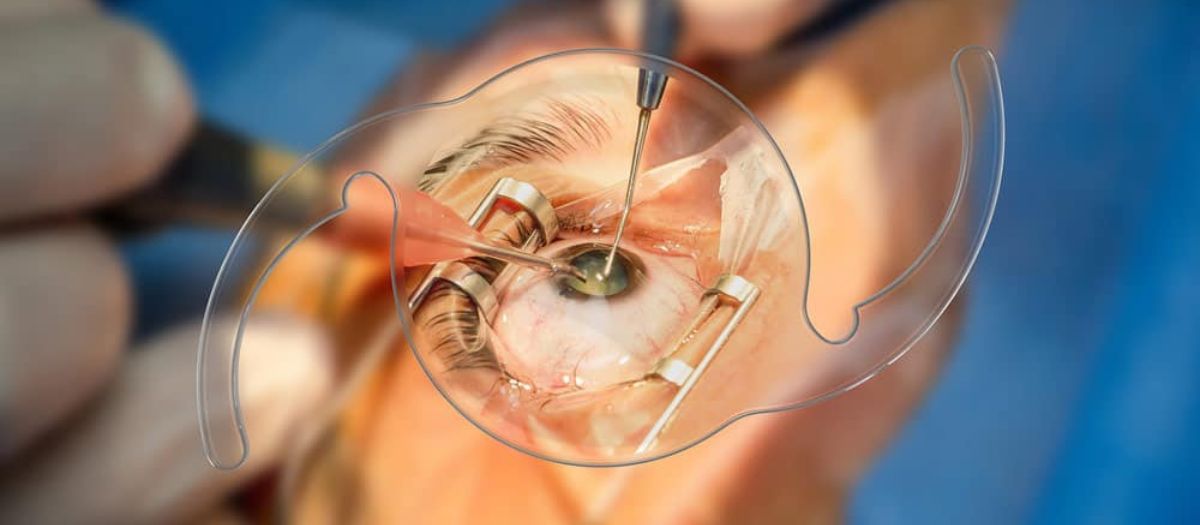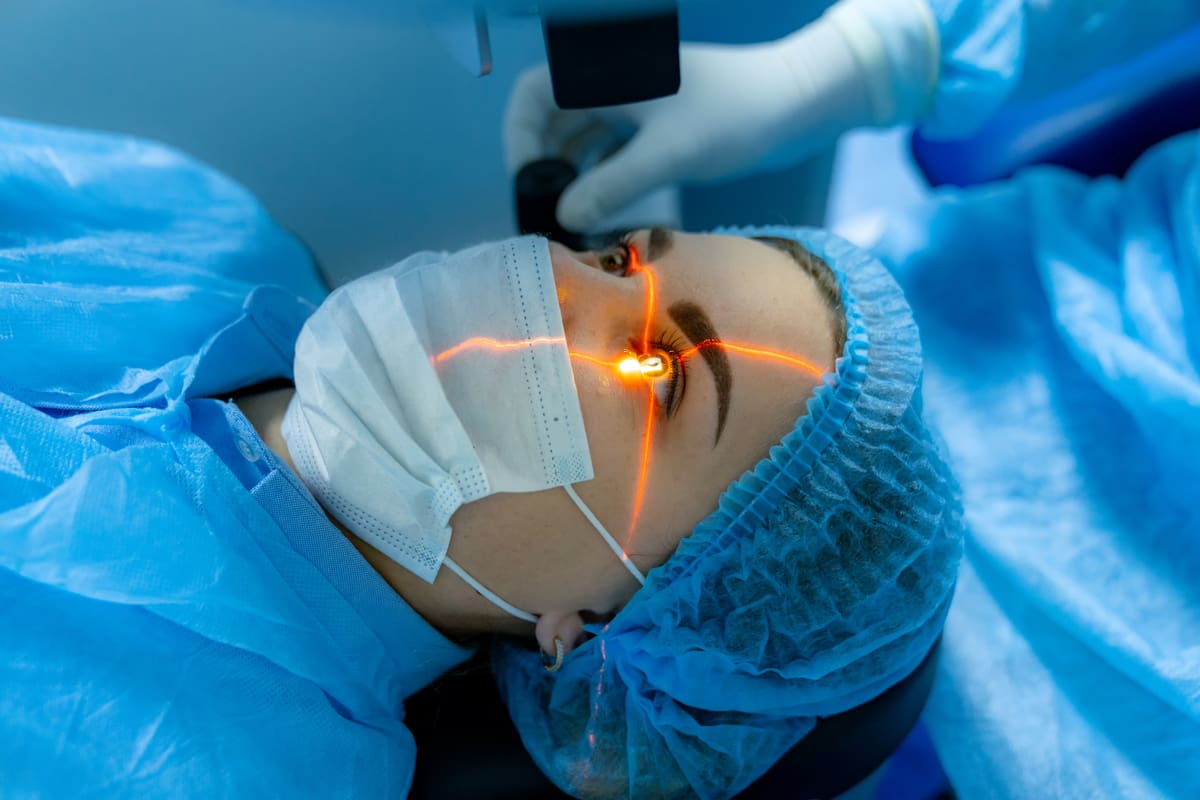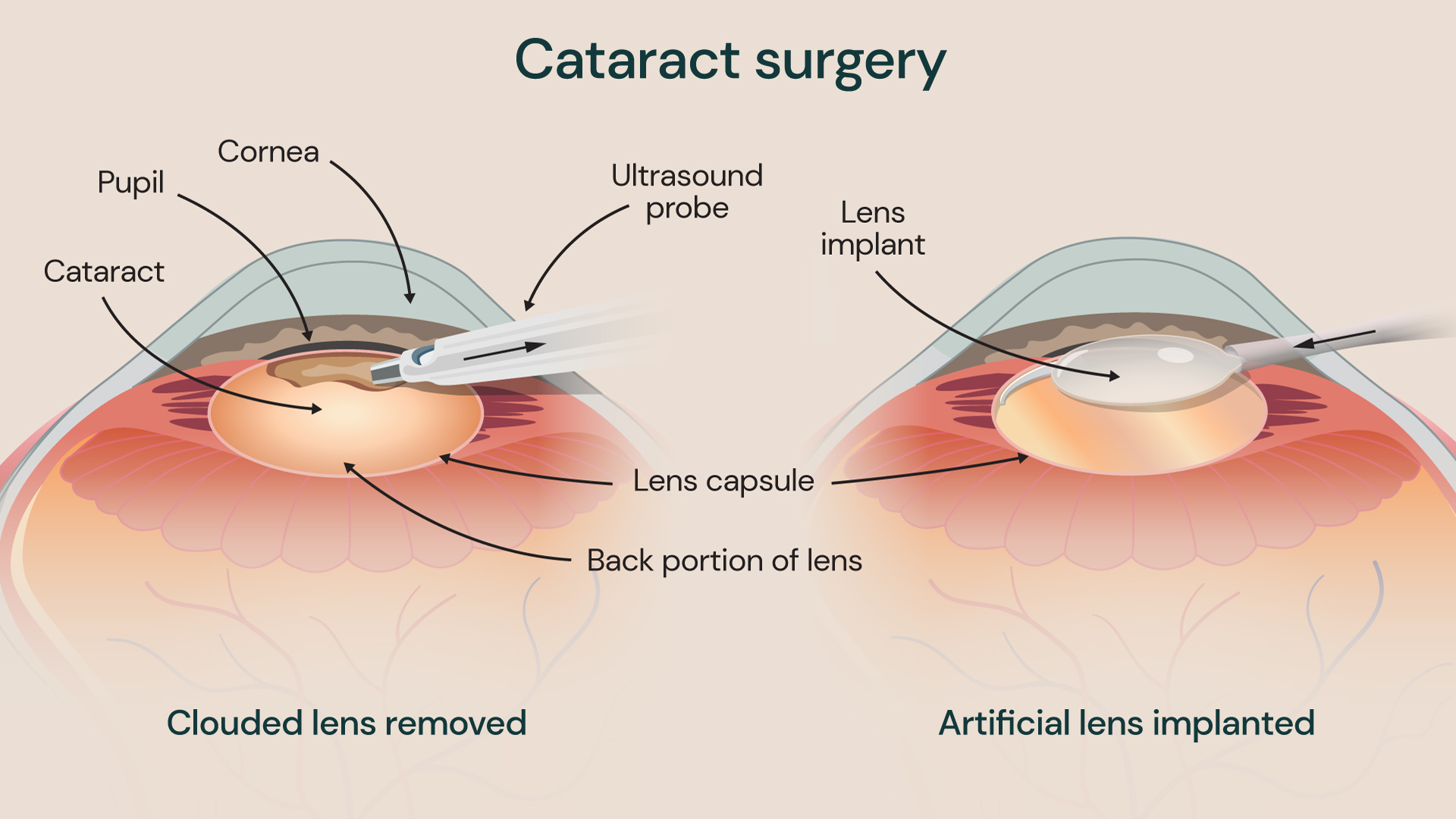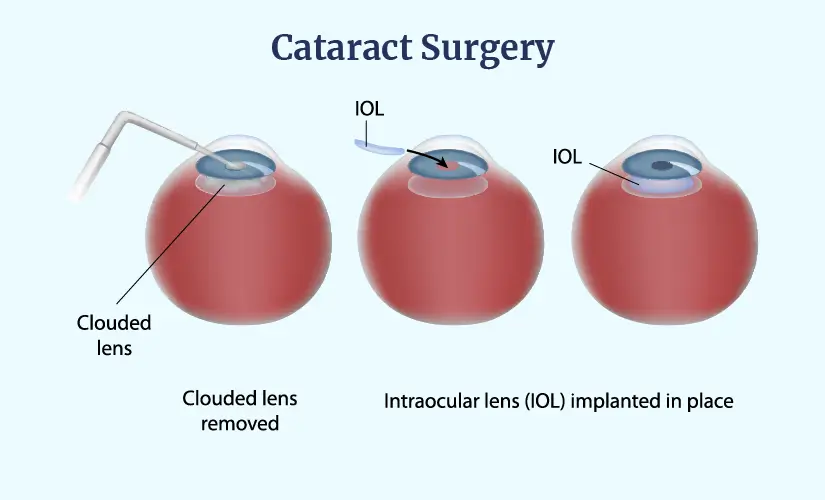Cataract Surgery-various aspects-
For cataract surgery near BOSCO Center Mall Near Prasad Circle, Gangapur Rd, Nashik, think about going to ASG Eye Hospital or Dr. Agarwals Eye Hospital. Both provide extensive eye care services, including cataract surgery, and have locations in or close to these areas. Practo features ophthalmologists in Upendra Nagar, such as Dr. Mona Bhagwandas at Susheel Eye Institute, which is part of Dr Agarwals Eye Hospital.


Detailed Options:
Dr. Agarwals Eye Hospital:
This hospital chain has several branches in Nashik and offers a broad array of eye care services, including cataract surgery. They utilize cutting-edge technology and possess skilled specialists.
ASG Eye Hospital:
Situated on Gangapur Road, ASG Eye Hospital offers services such as LASIK procedures, cataract surgery, retina treatment, and more.
Practo:
Practo displays ophthalmologists in Upendra Nagar, which can assist you in finding a surgeon in your vicinity. Dr. Mona Bhagwandas at Susheel Eye Institute is listed as a choice.
If Any Patient of ENT Requires Any Surgery, Opd Consultation Or Online Consultation In Clinic of ENT Specialist Doctor Dr. Sagar Rajkuwar ,He May Contact Him At The Following Address-
Prabha ENT Clinic, Plot no 345,Saigram Colony, Opposite Indoline Furniture Ambad Link Road ,Ambad ,1 km From Pathardi Phata Nashik ,422010 ,Maharashtra, India-Dr. Sagar Rajkuwar (MS-ENT), Cell No- 7387590194, 9892596635
Brief
What is cataract surgery?
Cataract surgery is a type of surgical procedure focused on removing a cataract (cloudy lens) to enhance your vision. Your eye, similar to a camera, possesses a lens that concentrates light. The lens primarily consists of water and proteins. As a cataract develops, the proteins start to break down, resulting in the lens becoming cloudy and yellowish. Aging is the primary cause of cataracts. Nonetheless, specific medical conditions and medications, injuries, and prior eye surgeries can also lead to cataracts.


A cataract obstructs light from effectively passing through your lens. Consequently, you may experience symptoms such as blurry vision, halos around bright lights, or double vision.
Cataract surgery involves the removal of the cloudy lens and its replacement with a clear, artificial lens. An ophthalmologist conducts the surgery and assists you in choosing the type of intraocular lens (IOL) that suits you best.
Most individuals have an IOL inserted during their cataract surgery. IOLs are transparent so that light can penetrate and be focused correctly by your eye. IOLs come with varying focusing powers to address nearsightedness and farsightedness.
Your surgeon might also provide specialty IOLs for correcting astigmatism and presbyopia. Although these may not be covered by insurance, they could help reduce your dependence on glasses or contacts after cataract surgery.
Cataract surgery is presently the only established method for treating cataracts in adults. For many individuals, surgery restores vision and has minimal complications. It’s a quick, outpatient procedure that allows for a rapid recovery. You might only require surgery on one eye. If both eyes have cataracts that need treatment, your ophthalmologist will arrange for two separate surgeries a week or two apart.
How painful is cataract surgery?
The majority of individuals experience little to no pain during or after cataract surgery. You will be administered a topical anesthetic (eye drops) to numb your eye for the duration of the surgery. Shortly following the surgery, your eye may feel gritty or mildly tender, but over-the-counter pain relief should help alleviate this.
Who needs cataract surgery?
You might require surgery if cataracts in one or both eyes are causing vision issues that disrupt your daily activities.
Your eye care professional may also suggest cataract surgery if they require visibility of the back of your eye to manage other eye conditions such as:
- Age-related macular degeneration.
- Diabetes-related retinopathy.
It’s crucial to understand that cataract surgery does not address vision loss caused by these other conditions. It solely improves vision loss caused by cataracts.
How do I decide if it’s time for cataract surgery?
Cataracts are not a medical emergency. Therefore, if you’ve recently found out that you have cataracts, don’t feel hurried or pressured into scheduling surgery. Typically, you can wait to undergo the surgery until it is most convenient for you.
When you initially recognize cataract symptoms, a new pair of glasses or contacts might be beneficial. However, cataracts typically worsen as time passes. When cataracts prevent you from performing necessary or desired activities, it could be an indication that surgery is required. Consult with your eye surgeon regarding the optimal timing for surgery based on your specific circumstances.
How prevalent is cataract surgery?
Cataract surgery ranks among the most frequently performed surgeries in both the U. S. and worldwide. Researchers suggest that annually, over 3 million cataract surgeries are conducted in the U. S. and around 20 million globally. Approximately half of all individuals who reach their 90s will require cataract surgery.
Specific Details
How should I get ready for cataract surgery?
Prior to your surgery day, you will have a meeting with your ophthalmologist for a comprehensive eye exam. As part of this evaluation, your ophthalmologist will:


- Assess your eye health.
- Search for any indications that you should not undergo surgery.
- Identify risk factors that might complicate your surgery.
- Measure your eye to determine the appropriate focusing power for your IOL.
- Inform you if you need to use prescription eye drops.
Utilize this time to communicate any concerns or inquiries with your ophthalmologist. You might want to inquire:
- What are the surgery risks specific to me?
- What benefits will I gain?
- Which type of IOL do you suggest for me?
- Will I require glasses or contacts post-surgery?
- What will the duration of my recovery be?
- When can I anticipate returning to my regular activities?
You will be unable to drive immediately after your surgery. Therefore, remember to request someone to transport you to and from your surgery.
How is cataract surgery performed?
Cataract surgery is a procedure done on an outpatient basis. Therefore, you will be able to go home shortly after the surgery is completed.
To carry out cataract surgery, your surgeon will:
1. Numb the outer layer of your eye. This procedure is referred to as topical anesthesia. You will receive eye drops in your eye so you won’t experience any sensation during the surgery. You may also be given medication to help you feel more relaxed. You will be conscious throughout your surgery, but you won’t see anything approaching you. The only thing you will perceive is a spectrum of lights.
2. Create a small incision in your cornea. Your surgeon will employ either a laser or a blade for this step. Generally, the incision does not require stitches to be closed.
3. Fragment and extract the cataract. The most frequent method for this is a technique called phacoemulsification. Your surgeon will utilize ultrasound waves to break your lens into numerous small fragments. Following this, they will suction out those fragments.
4. Place your new lens. Your surgeon will insert your new lens through the same incision. The majority of IOLs can be folded for simpler insertion. Your IOL will then expand into the area where your opaque lens had been positioned.
5. Shield your eye. Your surgeon will secure a protective shield (similar to an eye patch) over your eye for its protection.
For Update On Further Important Health Related Topics And Frequently Asked Questions On Health Topics By General Population Please Click On The Link Given Below To Join Our WhatsApp Group –
https://chat.whatsapp.com/Lv3NbcguOBS5ow6X9DpMMA
How long does cataract surgery require?
Cataract surgery typically lasts between 10 to 15 minutes. When including preparation and recovery, your entire appointment could span several hours. Inquire about the duration from your ophthalmologist so you can inform the individual driving you.
What can I expect after cataract surgery?
After your surgery is over, your surgeon will monitor you for 15 to 30 minutes. They’ll also schedule your first follow-up appointment. Then, you can go home.
Things may look blurry right after your surgery. This is normal. Your vision will gradually improve over the next few days and weeks. Other temporary side effects can include:
- Gritty feeling in your eyes.
- Red or bloodshot eyes.
- Watery eyes.
Risk Factors
What are the advantages of cataract surgery?
Cataract surgery is the sole method to eliminate a cataract and enhance your vision clarity. There are no medications or eye drops that have been shown to improve deteriorating eyesight due to cataracts.


Following surgery, you can anticipate:
- Enjoying clearer, sharper vision.
- Being less disturbed by glare when exposed to bright lights (such as while driving at night).
- Seeing colors in a more vibrant manner.
- Depend less on glasses, in some instances.
How effective is cataract surgery?
Cataract surgery successfully enhances vision in approximately 97% of individuals who undergo the procedure.
What are the hazards associated with this procedure?
Cataract surgery is a secure, standard procedure. Complications during and after cataract surgery are uncommon when performed by a skilled surgeon. Your chances of experiencing complications may increase if you have specific eye disorders or health issues.
Potential risks of cataract surgery encompass:
- Eye bleeding or swelling.
- Persistent eye discomfort.
- Blurred vision or loss of vision.
- Visual anomalies, such as halos, glare, and shadows.
- Displacement of the IOL (your new lens shifts out of position).
- Posterior capsular opacification (the membrane surrounding your lens becomes opaque).
- Retinal detachment, impacting 2 out of 1,000 individuals.
- Infection, affecting fewer than 1 out of 1,000 individuals.
Your ophthalmologist can effectively manage most of these complications. Prior to your surgery, discuss your personalized risk level with your ophthalmologist. Additionally, inquire about the treatment options for any complications that could develop.
Recovery Time
What is the duration needed to recuperate from cataract surgery?
In most instances, complete recovery from cataract surgery requires four weeks. However, individuals frequently observe enhancements in their vision within a few days. There should be minimal pain or discomfort throughout this duration.
How should I care for myself at home?
Your surgeon will provide guidance on how to take care of yourself at home. It’s advisable to ask your surgeon for particular details regarding when you can:
- Drive.
- Swim.
- Apply eye makeup.
- Exercise.
- Bend over.
- Lift heavy items.
- Resume work or other activities.
You may want to have a family member or friend present to receive this information. Alternatively, request your surgeon to jot it down for you.
Some general recommendations for your return home consist of:
- Utilize eye drops as prescribed by your surgeon.
- Avoid getting water, shampoo, or soap in your eye.
- Do not rub or apply pressure to your eye.
- Wear sunglasses when stepping outside.
- Use your eye shield while sleeping and at other times as advised by your surgeon.
FOR INFORMATION IN GREAT DETAIL ON Cataract meaning PL CLICK ON THE LINK GIVEN BELOW-It Is Always Better To View Links From Laptop/Desktop Rather Than Mobile Phone As They May Not Be Seen From Mobile Phone. ,In Case Of Technical Difficulties You Need To Copy Paste This Link In Google Search. In Case If You Are Viewing This Blog From Mobile Phone You Need To Click On The Three Dots On The Right Upper Corner Of Your Mobile Screen And ENABLE DESKTOP VERSION.
If Any Patient of ENT Requires Any Surgery, Opd Consultation Or Online Consultation In Clinic of ENT Specialist Doctor Dr. Sagar Rajkuwar ,He May Contact Him At The Following Address-
Prabha ENT Clinic, Plot no 345,Saigram Colony, Opposite Indoline Furniture Ambad Link Road ,Ambad ,1 km From Pathardi Phata Nashik ,422010 ,Maharashtra, India-Dr. Sagar Rajkuwar (MS-ENT), Cell No- 7387590194, 9892596635
Issued In Public Interest By –
www.entspecialistinnashik.com
If you are from Nashik Maharashtra and having any eye/ophthalmic problem then you may take appointment with -Birla eye hospital, B-180, Opposite Zilla Parishad,, Trimbak Road, near Pooja Internatinal Hotel, Nashik, Maharashtra 422002,
Phone no -02532505666
If you are not from Nasy but from India then you may dial -8888888888-this is no of Just dial and they may provide you the contact number and adress off eye specialist doctor near your locality .In any case it is always better to take opinion from your regular doctor whom you trust,/respect so that he can let you know details of senior and experienced eye specialist doctor/ophthalmologist
Any ophthalmologist with minimum of 10 yrs experience is considered senior
The cost of Cataract Surgery
The surgical procedure known as cataract surgery involves extracting the lens of one or both afflicted eyes and replacing it with an artificial lens (called an intraocular lens or IOL). This surgery is carried out to treat “cataract,” a disorder in which one or both of the eye’s lenses get clouded, impairing vision and clarity. An ophthalmologist or eye specialist does cataract surgery, which is a fairly frequent procedure, especially among those over 60.
There are a number of specialized methods for performing cataract surgery:
- phacoemulsification
- Laser surgery for cataracts
- cataract extraction by hand using a tiny incision
On average, it takes 30 to 45 minutes for the cataract treatment to be finished. Patients often go back home the same day.


Which different procedures are there for cataract surgery?
The two main approaches to cataract surgery are as follows:
The more prevalent method of cataract surgery is micro-incision cataract surgery, which involves the surgeon making a little cut in the cornea. The incision is used to introduce a small surgical device known as a probe. The cataract lens is broken up into tiny pieces by the probe using ultrasonic waves, which are then removed. Following the removal of the damaged lens, a replacement artificial lens is inserted in its place.
Extracapsular Surgery: This procedure involves the surgeon making a bigger corneal incision to make it easier to remove the entire cloudy core of the lens in one piece. After that, the lens’s remaining components are vacuumed out. When financial factors have a major influence on the decision-making process, extracapsular surgery is selected.
In India, how much does cataract treatment cost?
In India, the price of cataract surgery varies depending on a number of things, including the city and the kind of operation carried out. The price of robotic cataract surgery in India, for example, will vary from the cost of laser cataract treatment. In India, the price of eye cataract surgery varies from Rs. 15,000 to Rs. 2,00,000. The typical cost of laser cataract surgery in India is about Rs. 27,000.
| Type of Cataract Treatment | Cost |
| Phacoemulsification Surgery | Rs. 30,000 – Rs. 2,15,000 |
| Phacoemulsification Cataract Surgery | Rs. 32,000 – Rs. 65,000 |
| Femtosecond Laser Assisted Cataract Surgery- FLACS | Rs. 50,000 – Rs. 1,60,000 |
| Manual Small Incision Cataract Surgery- MSICS | Rs. 15,000 – Rs. 30,000 |
| Microincision Cataract Surgery | Rs. 60,000 – Rs. 70,000 |
Among the popular places in India, the cataract surgery cost in Hyderabad is around Rs. 15,000 – Rs. 2,15,000 and in Bhubaneswar, it is around Rs. 76,000. Here is a list of the average cataract eye surgery costs in different cities across India:
| City | Average Cost |
| Cataract surgery cost in Hyderabad | Rs. 15,000 – Rs. 2,15,000 |
| Cataract surgery cost in Mumbai | Rs. 15,000 – Rs. 2,25,000 |
| Cataract surgery cost in Indore | Rs. 12,000 – Rs. 1,50,000 |
| Cataract surgery cost in Bhubaneswar | Rs. 20,000 – Rs. 2,10,000 |
| Cataract surgery cost in Bangalore | Rs. 15,000 – Rs. 2,00,000 |
| Cataract surgery cost in Nagpur | Rs. 14,500 – Rs. 1,50,000 |
| Cataract surgery cost in Chennai | Rs. 12,000 – Rs. 1,00,000 |
| Cataract surgery cost in India | Rs. 12,000 – Rs. 2,25,000 |
What causes the expense of cataract surgery?
The cost of eye cataract surgery is influenced by a number of variables, including:
The cost of laser cataract surgery may depend on the city where you have the procedure. In metropolitan areas, surgery may be more expensive than in tier 2 or tier 3 cities.
The kind of IOL utilized: There are several types of intraocular lenses that may be implanted in the eye(s), each with its own set of advantages.
Treatment may involve one or both eyes. The diagnosis and consultation may reveal that the patient has cataracts in both eyes or that the cataract has advanced more in one eye than the other. The price of laser cataract surgery in India may be impacted by this circumstance.
Insurance coverage is another factor that might have a direct influence on the amount of money that patients spend. Depending on the insurance provider selected, the treatment might be partially or completely covered, which would lower the patient’s out-of-pocket costs.
Preoperative diagnosis and testing: The kind of diagnostic or other tests required after consulting with an ophthalmologist may have an impact on the total cost of the cataract procedure.
Consultation fees: Renowned doctors with many years of experience may charge more for consultations. In some towns, the total cost of cataract therapy may be considerably decreased since some practicing or retired ophthalmologists could provide free appointments and treatment.
The cost of living might have an impact on the price of cataract surgery, particularly for patients who have traveled interstate for treatment, especially to India’s tier 1 cities.
The Healing Period Following Cataract Surgery
If you don’t have any significant eye problems, cataract surgery recovery is usually quick and straightforward. It’s recommended to relax for approximately an hour after the entire process, which takes between 10 and 15 minutes. After the procedure, there is a great likelihood of having better vision. You’ll get protective eyewear to wear for a few days to protect your eyes from dust and strong light.
Because your eyes require time to adjust to the new lens, it is typical for your sight to be a bit blurry or hazy for a period. Redness in the eyes can be caused by short-term blood vessel injury, but this is a natural component of the healing process and will disappear as your eyes recover over the course of a few days. The healing process differs from patient to patient, even if some people experience clear vision in just a few hours after surgery. Therefore, don’t be concerned if it takes a week or two for your eyes to start to see clearly.
Post-operative care for cataract surgery
Take into account the following advice to ensure a safe and speedy recovery after cataract surgery:
- Avoid driving on the day immediately following surgery.
- For a few weeks, refrain from engaging in demanding tasks and heavy lifting.
- To avoid putting too much pressure on your eye, be careful not to bend over right after surgery.
- Take precautions to avoid unintentional contact with items and exercise caution when moving around.
- To reduce the danger of infection during the first week, stay away from bathtubs and swimming.
- During the first week following the treatment, be especially careful to protect your eye from water, dust, and wind.
- Refrain from rubbing your eyes.
You may contact us at CARE Hospitals directly to obtain a precise estimate of the cost of cataract eye surgery in Hyderabad. Here, you can choose a consultation with some of the top ophthalmologists in India and get the best possible cataract eye surgery using the method of treatment that best suits you.
Frequently Asked Questions
1. In Hyderabad, what is the typical price of cataract surgery?
Depending on the healthcare facility and the kind of treatment, the average cost of cataract surgery in Hyderabad might vary greatly. For particular cost estimates, it is recommended to speak with nearby healthcare professionals.
2. What hazards does cataract surgery pose?
The hazards of cataract surgery might include infection, hemorrhage, edema, retinal detachment, and secondary cataracts. The majority of patients have positive outcomes, and problems are rather uncommon.
3. What different kinds of cataract surgery exist?
Extracapsular surgery and phacoemulsification (phaco) are the two main forms of cataract surgery. The majority of procedures are performed using ultrasound to break up the cataract for removal during phaco. The cloudy lens must be removed during extracapsular surgery, which necessitates a bigger incision.
4. When is the ideal time to have cataract surgery?
The ideal age for cataract surgery is determined on a case-by-case basis. Usually, it is advised when cataracts have a major impact on a person’s eyesight and way of life, often in their 60s or later. The decision is dependent upon the patient’s general health and visual requirements, though, since age is not the only consideration.



